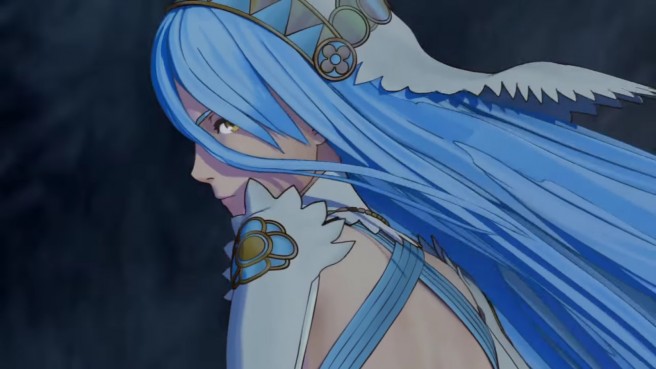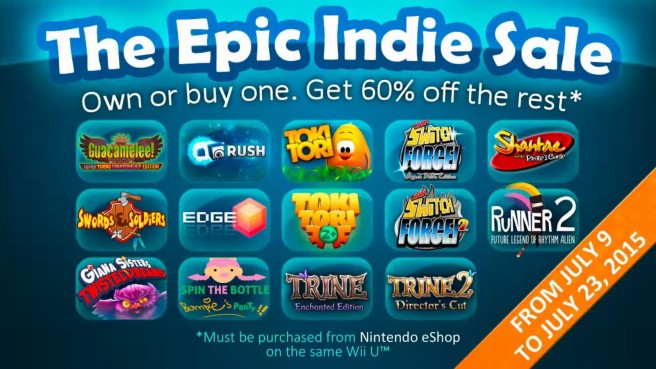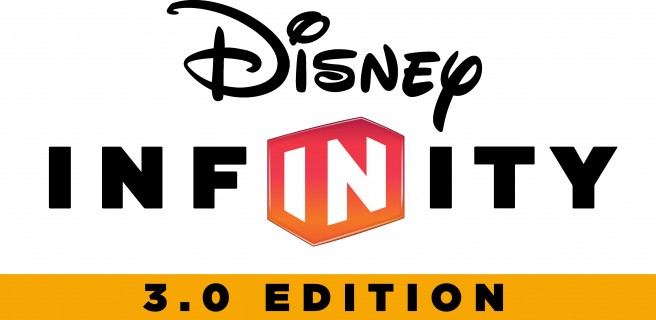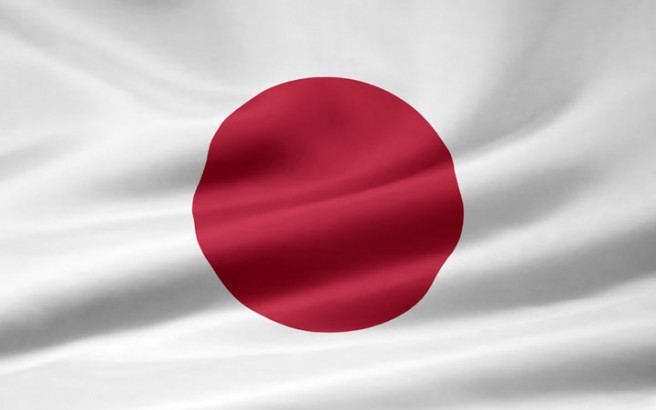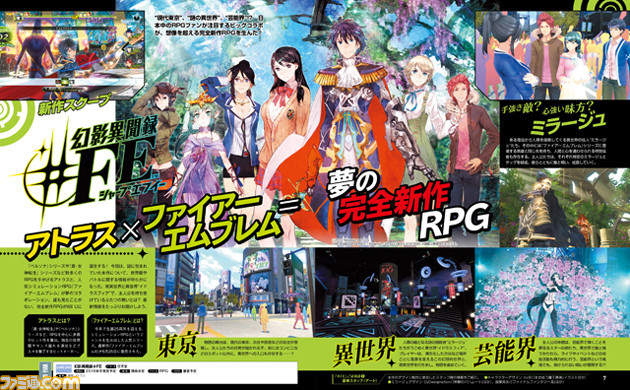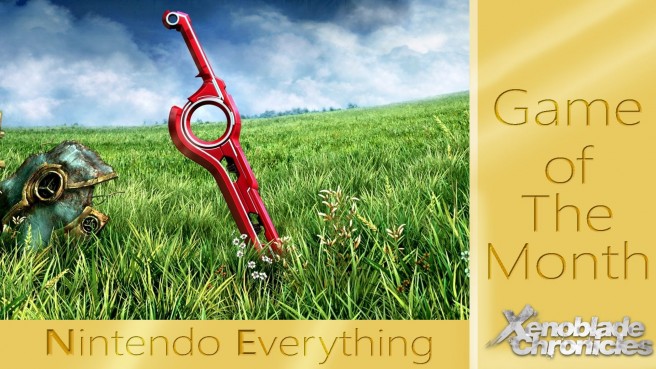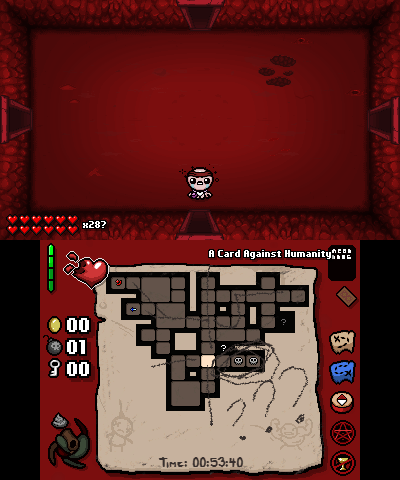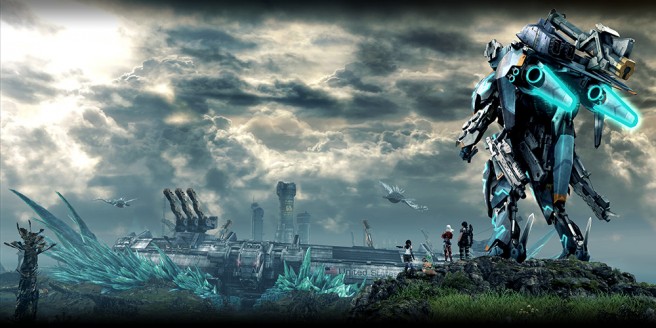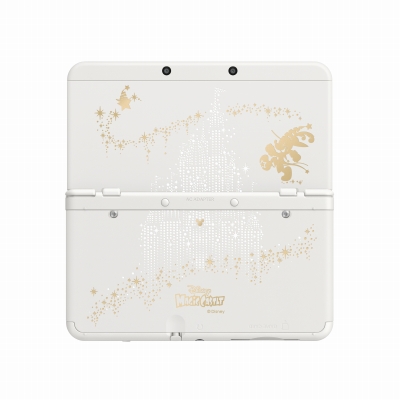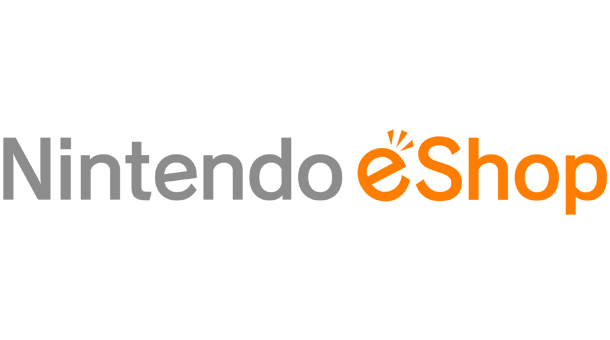Fire Emblem Fates – Invisible Kingdom (third scenario) launches today in Japan, trailer
Posted on 9 years ago by Brian(@NE_Brian) in 3DS, News, Videos | 10 Comments
Fire Emblem Fates’ third scenario, “Invisible Kingdom”, has arrived in Japan. It can be obtained for 2,000 yen by selecting “open a new future” option on the main menu.
Take a look at the trailer for Fire Emblem Fates’ Invisible Kingdom scenario below.
More: Fire Emblem Fates, top
Epic Indie Sale (Wii U eShop) also confirmed for North America, trailer
Posted on 9 years ago by Brian(@NE_Brian) in 3DS eShop, News, Wii U eShop | 6 Comments
The Epic Indie Sale for the Wii U eShop was announced for Europe earlier this week. Now we have confirmation that it will be going live in North America as well.
Fourteen Wii U eShop games will be included in the promotion. If you own or purchase any of the eligible titles, you can receive a 60 percent discount on the other releases.
Below is the lineup of participating games:
– BIT.Trip presents… Runner2: Future Legend of Rhythm Alien (Choice Provisions)
– EDGE (Two Tribes)
– Giana Sisters: Twisted Dreams (Black Forest Games)
– Guacamelee! Super Turbo Championship Edition (DrinkBox Studios)
– Mighty Switch Force 2 (WayForward)
– Mighty Switch Force! Hyper Drive Edition (WayForward)
– RUSH (Two Tribes)
– Shantae and the Pirate’s Curse (WayForward)
– Spin the Bottle: Bumpie’s Party (KnapNok Games)
– Swords & Soldiers (Two Tribes)
– Toki Tori (Two Tribes)
– Toki Tori 2+ (Two Tribes)
– Trine Enchanted Edition (Frozenbyte)
– Trine 2: Director’s Cut (Frozenbyte)
A trailer for the Epic Indie Sale is posted below. The sale will be active between July 9 and July 23.
Disney Infinity 3.0 launches in late August
Posted on 9 years ago by Brian(@NE_Brian) in News, Wii U | 0 comments
Disney Infinity 3.0: Play Without Limits is launching on August 30 in North America and August 28 in the UK, Disney Interactive has announced.
At participating retailers, those who pre-order the Disney Infinity 3.0 Starter Pack or standalone software will receive the new Toy Box Takeover Game Piece for free. If you have a Disney Infinity 1.0 or 2.0 Starter Pack, you can purchase the software on its own or a bundle featuring Play Set options of Twilight of the Republic or Inside Out.
Disney Interactive also shared details and screenshots for Toy Box Takeover and Toy Box Speedway, a pair of new Toy Box Expansion Games. All of that content is posted below.
Toy Box Takeover
When Syndrome gets his hands on Merlin’s magic wand, it’s up to the player to stop him. Using their favorite characters in Disney Infinity, they must battle across multiple worlds, such as Pirates of the Caribbean, Marvel’s Upper Manhattan, The Old West, or The Incredibles Volcano Lair to defeat the bad guys before they ruin the Toy Box forever. Players can complete missions with family and friends via two-player local co-op or four-player online.Toy Box Speedway
Players can join their favorite Disney, Disney•Pixar, Marvel’s and Star Wars™ characters and vehicles in an action-packed kart-racer. With nine franchise-themed tracks to choose from – Sugar Rush, Frozen, Tatooine, a classic Star Wars™ location, San Fransokyo, Agrabah, Monsters Inc., Halloween Town, Gravity Falls or Marvel’s Knowhere – they can choose from three different game modes including Time Trial mode, Race mode and Combat mode. Players put their driving skills to the test as they attack opponents with gadgets and weapons and earn trophies across three challenge cups.
Source: Disney Interactive PR
Media Create sales (6/29 – 7/5)
Posted on 9 years ago by Brian(@NE_Brian) in 3DS, New Nintendo 3DS, News, Wii U | 15 Comments
The latest Japanese hardware sales from Media Create are as follows:
New 3DS LL – 19,475
PS4 – 18,171
Vita – 14,067
Wii U – 12,781
New 3DS – 5,506
PS3 – 3,102
3DS – 1,394
3DS LL – 861
Vita TV – 741
Xbox One – 235
For comparison’s sake, here are the hardware numbers from last week:
Vita – 23,134
New 3DS LL – 21,818
PS4 – 14,482
Wii U – 13,166
New 3DS – 8,294
PS3 – 2,761
3DS – 1,396
3DS LL – 847
Vita TV – 820
Xbox One – 243
And here are the software charts:
1. [3DS] Fire Emblem Fates – 54,896 / 315,571
2. [3DS] Rhythm Heaven: The Best Plus – 34,467 / 301,193
3. [WIU] Splatoon – 34,135 / 382,175
4. [PSV] Persona 4: Dancing All Night – 13,028 / 107,064
5. [PSV] Minecraft: PlayStation Vita Edition – 11,941 / 232,530
6. [WIU] Mario Kart 8 – 7,833 / 1,053,734
7. [3DS] Dragon Ball Z: Extreme Butoden – 6,656 / 105,445
8. [3DS] Return to PopoloCrois: A Story of Seasons Fairytale – 4,992 / 60,768
9. [PS4] Devil May Cry 4 Special Edition – 4,920 / 47,246
10. [3DS] Pokemon Omega Ruby/Alpha Sapphire – 4,719 / 2,653,053
11. [3DS] Animal Crossing: New Leaf – 4,276 / 3,994,729
12. [PS4] The Witcher 3: Wild Hunt – 3,529 / 125,567
13. [3DS] Super Smash Bros. for 3DS – 3,325 / 2,253,580
14. [3DS] Girls Mode 3 – 3,148 / 161,545
15. [PSV] Zettai Geigeki Wars – 2,831 / NEW
16. [3DS] Puzzle & Dragons: Super Mario Bros. Edition – 2,708 / 272,776
17. [PSV] Chaos;Child – 2,556 / 12,882
18. [WIU] Super Smash Bros. for Wii U – 2,536 / 651,565
19. [PS4] Final Fantasy XIV: Heavensward – 2,430 / 41,188
20. [PSV] Eiyuu Densetsu Sora no Kiseki FC Evolution – 2,142 / 30,275
More: charts, Japan, Media Create, sales, top
Shin Megami Tensei X Fire Emblem details – takes about 30 hours to complete
Posted on 9 years ago by Brian(@NE_Brian) in News, Wii U | 12 Comments
Famitsu has an update on Shin Megami Tensei X Fire Emblem this week. Additionally, there’s an interview with some of the game’s developers.
Here’s a brief summary of what was shared in the latest Famitsu:
– Has characters from Fire Emblem: Awakening and Fire Emblem: Shadow Dragon and the Blade of Light
– Characters from both games will appear as heroes as well as villains
– Popularity polls and such helped determine the character selection
– Will see the likes of Cain and Abel in the game
– Characters that appeared as enemies in Fire Emblem will appear as enemies in Shin Megami Tensei X Fire Emblem
– The devs say that the main story will take around 30 hours to finish
– There are also side stories and other extras to take on
– This content will apparently amount to another 30 hours
– Game is being balanced and bug-tested
– All content and features are in place
Top 4 Legendary Weapons
Posted on 9 years ago by Kirara Koneko(@KiraraKoneko) in Features, Game of the Month, General Nintendo | 6 Comments
What makes a sword earn the classification of an epic weapon? How do you know the sword you wield will help to change the fate of the world? Throughout many franchises across Nintendo’s systems, there have been numerous heroes, each of whom have generally had an epic weapon to aid them in their lofty quest. Whether by their choice or destiny, these heroes have been selected for a task that only they can achieve. Some must complete this task on their own, some guided by a higher power, and some are blessed with companions to help them along the way. But what all of these protagonists have in common is they hold the key to their fates in their hands.
The Binding of Isaac: Rebirth coming to Wii U and New 3DS on July 23 in North America
Posted on 9 years ago by Brian(@NE_Brian) in 3DS eShop, New Nintendo 3DS, News, Wii U eShop | 5 Comments
The Binding of Isaac: Rebirth is just a couple of weeks away from launching on Nintendo platforms. Today, Nicalis announced that the game will be hitting Wii U and New 3DS on July 23. It will be made available as an eShop download.
Note that the July 23 release date only applies to North America. Nicalis will hopefully bring The Binding of Isaac: Rebirth to Europe in due time, but there’s no news on that front yet.
It's official, The Binding of Isaac: Rebirth comes to Xbox One, Wii U and new 3DS in North America July 23rd! pic.twitter.com/zAZ4PKcAHY
— Nicalis, Inc. (@nicalis) July 7, 2015
More: Nicalis, The Binding of Isaac: Rebirth, top
Xenoblade Chronicles X executive director wants to focus more on story for his next title
Posted on 9 years ago by Brian(@NE_Brian) in News, Wii U | 23 Comments
In a guidebook for Xenoblade Chronicles X, fans left various feedback about the Wii U RPG. Players noted that they wanted a more passionate/rich story, the UI was a little difficult to use, and the battle system had a bit too much going in.
Xenoblade Chronicles X executive director responded to all of the feedback, and thanked fans for everything they had to say. He also said he agrees with most of what was mentioned.
Other feedback left by fans:
– Letters are too small
– Inviting other party members was tedious
– It would be cool to be able to go into out-space
– Fans more lively online features in Monolith Soft’s next title
Takahashi concluded his thoughts with the following:
“Being several years behind others in the development of an HD title and taking into account Monolith Soft’s company size, there are just some thing that we could not achieve, which couldn’t be helped, but in order to move on towards the next step, there was no avoiding this. And that is the truth.”
Disney Magical World 2 getting a New 3DS bundle in Japan, more images
Posted on 9 years ago by Brian(@NE_Brian) in New Nintendo 3DS, News | 0 comments
When Disney Magical World 2 launches in Japan later this year, Bandai Namco will also make a New 3DS bundle available. This will come with unique cover plates for the system. It’ll cost 21,690 yen.
Take a look at some additional images for Disney Magical World 2 below.
More: Bandai Namco, Disney Magical World 2, Japan, top
Nintendo Download (7/9/15, Europe): Never Alone, Battle Network 4, Epic Indie Sale
Posted on 9 years ago by Matt(@OnePunchMaz) in 3DS eShop, News, Wii U eShop | 0 comments
This week’s European Nintendo Downloads are as follows:
Wii U Download
Never Alone – €14.99/£12.99
Funk of Titans – €8.99/£8.09
Wii U Virtual Console
Mega Man Battle Network 4 Blue Moon (GBA) – €6.99/£6.29
Mega Man Battle Network 4 Red Sun (GBA) – €6.99/£6.29
3DS Download
BIKE RIDER DX2: GALAXY – €2.99/£2.69
3DS DLC
BIKE RIDER DX2: GALAXY: Append Stage [Moon] – Free
BIKE RIDER DX2: GALAXY: Append Stage [Ex] – €0.99/£0.89
BIKE RIDER DX2: GALAXY: Append Stage [Tatsujin] – €0.99/£0.89
eShop Sales
Wii U
Spot The Differences: Party! – €2.99/£2.69 (Ends July 16, normally €5.00/£4.49)
Bombing Bastards – €4.99/£4.49 (Ends July 16, normally €6.99/£5.99)
Epic Indie Sale
If you own one of the titles listed below, you can buy the others at a discounted rate. Offer ends July 23rd.
BIT.TRIP Presents… Runner2: Future Legend of Rhythm Alien – €4.79/£3.99 (Normally €11.99/£9.99)
EDGE – €0.79/£0.71 (Normally €1.99/£1.79)
Giana Sisters: Twisted Dreams – €5.99/£5.19 (Normally €14.99/£12.99)
Guacamelee! Super Turbo Championship Edition – €5.59/£4.79 (Normally €13.99/£11.99)
Mighty Switch Force! 2 – €2.00/£2.00 (Normally €5.00/£5.00)
Mighty Switch Force! Hyper Drive Edition – €3.99/£3.59 (Normally €9.99/£8.99)
RUSH – €0.79/£0.71 (Normally €1.99/£1.79)
Shantae and the Pirate’s Curse – €6.79/£6.39 (Normally €16.99/£15.99)
Spin the Bottle: Bumpie’s Party – €3.59/£3.20 (Normally €8.99/£8.00)
Swords & Soldiers – €1.19/£0.99 (Normally €2.99/£2.69)
Toki Tori – €0.79/£0.69 (Normally €1.99/£1.79)
Toki Tori 2 + – €5.99/£5.19 (Normally €14.99/£12.99)
Trine 2: Director’s Cut – €6.79/£5.39 (Normally €16.99/£13.99)
Trine Enchanted Edition – €5.19/£4.39 (Normally €12.99/£10.99)
3DS
Talking Phrasebook – 7 Languages – €2.99/£2.69 (Ends July 16, normally €4.99/£4.49)
Snow Moto Racing 3D – €3.99/£3.59 (Ends July 23, normally €7.99/£7.19)
Source: Nintendo PR
